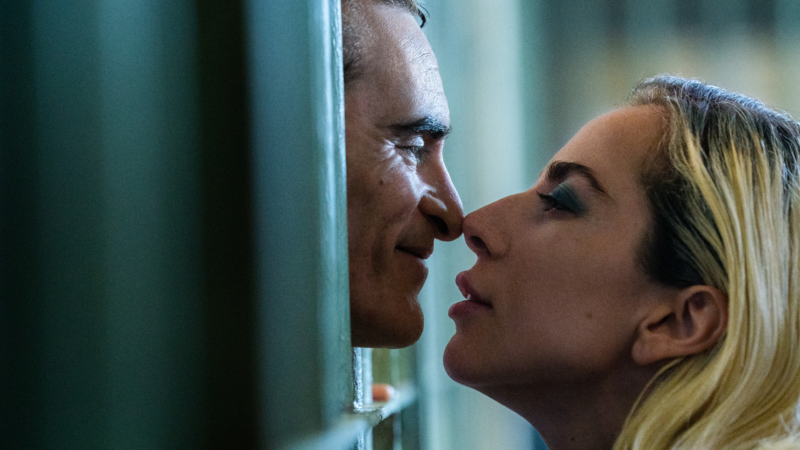Octopuses and fish share leadership–and enforcement–in group hunting
The Red Sea, sandwiched between northeast Africa and the Arabian Peninsula, is teeming with life, including octopuses and more than a thousand species of fish.
Every day, the goal of these creatures is the same.
“Anything that is smaller than them and can fit their mouth, they’re going to try to eat,” says Eduardo Sampaio, a behavioral biologist at the Max Planck Institute of Animal Behavior in Konstanz, Germany.
He was intrigued by descriptions of different species hunting together among the coral reefs in large groups. “Not just one octopus and one fish,” Sampaio says. “We’re talking about one octopus and five, six, seven, eight, nine, ten very different fish.”
For years, the hierarchy of these groupings hasn’t been clear. But in a new study published in the journal Nature Ecology & Evolution, Sampaio and his colleagues argue that the creatures are sharing the leadership as they make hunting decisions.
“This type of very complex dynamics that we think only emerged in complex societies,” he says, “we can find this in the wild, even between animals that are not related.”
Shared leadership benefits everyone
Sampaio says that before this study, the consensus among researchers had been that the octopus (specifically, a species called the day octopus) was doing all the work. And the fish—usually different kinds of goatfish—were freeloading.
“So the octopus would just be doing its thing, hunting by itself,” he explains. “And the fish would be preying on the prey that the octopus was flushing out, purely taking advantage.”
But Sampaio says these conclusions were largely drawn from looking at the situation from the surface. He wondered whether something more complex might be going on. So he decided to scuba dive and find out.
“We can actually go with several cameras, reconstruct everything in 3D, and try to see who is following who around the habitat,” Sampaio says.
There were, of course, challenges to the approach. “You have to find the octopus, which is an animal that evolved to not be found,” he says. “And when you find it and it’s hunting, it has to be habituated enough to you that it continues hunting like you are not there, and doesn’t escape.”
After a month of diving, Sampaio successfully managed to record three or four hours of hunting of these mixed-species groups.
“I immediately understood that these groups weren’t just following the octopus around because you could clearly see they move in a stop-and-go pattern,” he says. “And once this stopping occurs, there’s always fish that start to go around looking for prey.”
The analysis later confirmed the complexity of their collective hunting.
“The fish explore the environment,” Sampaio says. “They find the prey. And then the octopus chooses between the options that the fish give—and [the octopus] moves there, flushing out prey. Then the whole group moves with the octopus.”
So the fish present possible targets to the octopus, and the octopus selects the one it wants. Sampaio says the creatures are divvying up the roles and sharing the leadership.
Feeding is first come, first serve, but with the hunting happening over and over again, eventually all the group members get to eat. Sampaio says the result likely helps the fish, “because they gain access to prey that would be otherwise unattainable because they cannot reach prey that is in crevices.” It’s prey that the octopus can easily drive out. This teamwork appears good for the octopus, which feeds more than it would on its own and with much less effort.
Freeloaders better duck
Still, any good party has its crashers. In this case, blacktip groupers wait off to the side and watch. “Once they see prey,” Sampaio says, “they move and try to get it.”
But these blacktips pay a price for their freeloading. Almost half the time they’re in the group, the octopus punches them. The first time he saw it, Sampaio cracked up.
He says the octopus punches other fish, too, if they’re not pulling their weight or if the group is at a standstill for too long. “And then this creates more movement in the group, and then the octopus stops punching.”
Sampaio also observed some of the fish species attacking other fish that weren’t contributing to the hunt. “So they also have this understanding that this this species here is mostly free riding,” he says.
But the fish never harmed the octopus. Sampaio doesn’t think it’s because the octopus is stronger, but rather “it seems there’s an understanding from the fish that if the octopus goes away, then no one” gets anything.
Ocean ecologist Kelly Benoit-Bird, with the Monterey Bay Aquarium Research Institute, who wasn’t involved in the research, says the study was conducted carefully, though she’d like to know what’s going on when no people are around by using autonomous robots or cameras to film the groups.
“It’s hard to put a diver in the water at night and see if this happens at other times of the day,” she says. “It’s hard to do this when there might be a storm approaching.”
Still, Benoit-Bird is excited about what these octopus and fish hunting groups may have to teach people.
“We can learn about alternative points of view about how leadership can look,” she says, “as we think about how to structure organizations or build teams to end up with better outcomes.
And she says maybe punching shouldn’t be allowed.
GPB morning headlines for September 23, 2024
The State Election Board passed arguably the most contentious of 11-new rules that it had been considering at a closely-watched meeting Friday. Just over a month before Election Day presidential candidates continue to court Georgia voters. Georgia has surpassed 100,000 electric vehicle registrations.
California sues ExxonMobil for misleading public on plastic recycling
California’s lawsuit alleges that ExxonMobil has known for decades that recycling would not effectively stem the flow of plastic waste.
‘I didn’t want it to end.’ Why director Todd Phillips came back with another ‘Joker’
After the 2019 Joker wrapped, Phillips knew he wanted to do more with Batman's archnemesis. Joker: Folie à Deux is a musical sequel, starring Joaquin Phoenix and Lady Gaga.
Birmingham leaders plead for information on mass shooting and announce reward money
Authorities have still made no arrests after Saturday’s shooting killed four people and left 17 others injured. Police described it as a targeted “hit” on someone by multiple shooters who opened fire on a crowd waiting in line outside a nightspot in Birmingham’s bustling Five Points South district.
Stylish Olympic shooter Kim Yeji got an acting gig. She plays an assassin, of course
Kim Yeji, whose cool style and demeanor made her a "main character" of the Summer Olympics, has landed an acting gig and work with fashion brands. She says her athletic career remains her priority.
Crime in the U.S. fell in 2023, FBI data show
New data released by the FBI show violent crime and property crime both fell in 2023 compared to the previous year.







